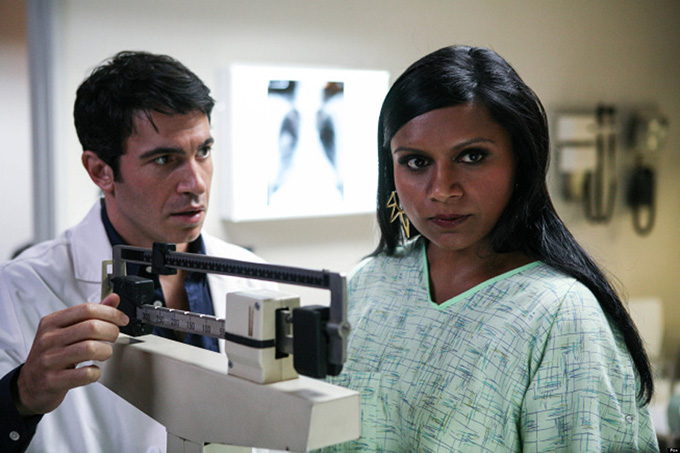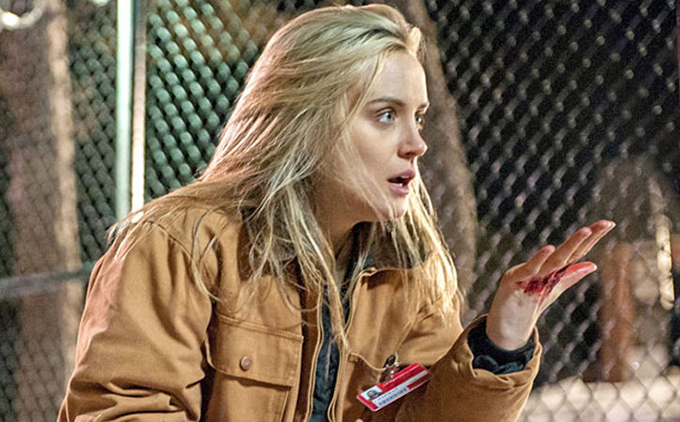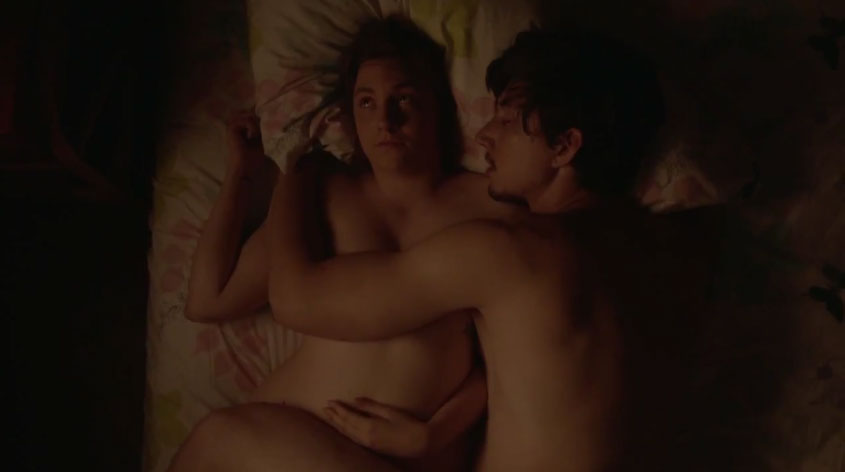By providing your information, you agree to our Terms of Use and our Privacy Policy. We use vendors that may also process your information to help provide our services. This site is protected by reCAPTCHA Enterprise and the Google Privacy Policy and Terms of Service apply.
Sundance: Lena Dunham, Kristen Wiig and Your Other Favorite Female Comedians on Misogyny, Sex Scenes, and Their Secret Weapons

“Behind every great woman is another woman,” said John Cooper, director of the Sundance Film Festival, as he introduced four of the entertainment industry’s most powerful women, who happen to also be excellent comedy writers: Jenji Kohan (“Orange is the New Black”), Lena Dunham (“Girls”), Kristen Wiig (“Saturday Night Live” and “Bridesmaids”) and Mindy Kaling (“The Mindy Project”). The panel, “Serious Ladies,” aimed to both explore and deconstruct the idea of the “female creator” in today’s entertainment landscape. The comedians shared anecdotes in their familiar humorous fashion, but underneath the jokes was a serious undercurrent of the misogyny these women face in Hollywood.
“Female writer” as a double-edged sword
 Female writers are asked more frequently about all the following topics than male writers: Whether their work is autobiographical, whether their characters are likable, whether their unlikable characters are unlikable on purpose and how they managed to write after having children.
Female writers are asked more frequently about all the following topics than male writers: Whether their work is autobiographical, whether their characters are likable, whether their unlikable characters are unlikable on purpose and how they managed to write after having children.
What are the implications of the term “female writer”? Moderator Emily Nussbaum, TV critic for “The New Yorker,” is no stranger to this issue herself. She opened the panel with a meta-criticism of the idea of female writer panels, probing whether this nomenclature can be galvanizing or ghettoizing. “Often on panels with men, it’s hard to get yourself heard, because they love to hear themselves talk,” said Kohan. “But it can feel like a ghetto. Like, ‘Oh, it’s the chick panel.’ It’s a double-edged sword.”
Misogyny in Hollywood
 The higher you go in Hollywood, the harder it is to find women directors. With only six percent of women directing the 250 annual top-grossing films, it’s abundantly clear that the studio system has a woman problem.
The higher you go in Hollywood, the harder it is to find women directors. With only six percent of women directing the 250 annual top-grossing films, it’s abundantly clear that the studio system has a woman problem.
Looking back on the release of Kristen Wiig’s “Bridesmaids,” one would think it was the first time Hollywood had ever deigned to consider the idea of a successful female comedy. In 2011, Owen Gleiberman of “Entertainment Weekly” wrote: “So far, the message that Hollywood seems to have taken from the incredible success of ‘Bridesmaids’ is a predictably reductive one: Hey, look! Raunchy comedies for women with awesome gross-out scenes in the middle of them can be big box office too! The message that Hollywood should be taking is: A comedy that’s raunchy and fearless, and also brilliantly written and shrewdly honest about what’s really going on in women’s lives, may actually connect with the fabled non-teenage audience.”
Wiig was similarly incredulous about the reception of her film. “I remember people kept talking about it being a female comedy,” she said. “I was like, Why do you call it a female comedy? Because when you talk about other comedies, I’ve never heard the phrase ‘male comedy.’ I get it. I understand. But it’s also just…. funny is funny!”
Nussbaum, too, recalled that pressure: “I remember getting emails about ‘Bridesmaids’ saying, ‘Make sure this movie is seen because otherwise they’ll never make another movie about women again.’ That was really disturbing to me.”
Television, the (relative) land of opportunity
 On the television front, prospects for women are relatively less bleak. According to the DGA, women directed 14 percent of all TV episodes from 2012 to 2013. With shows such as the panelists’ creations, “Broad City,” and “Parks and Recreation” bolstering TV slates with high-performing female-driven content, network executives have become increasingly interested in green-lighting shows that cater to an underserved demographic.
On the television front, prospects for women are relatively less bleak. According to the DGA, women directed 14 percent of all TV episodes from 2012 to 2013. With shows such as the panelists’ creations, “Broad City,” and “Parks and Recreation” bolstering TV slates with high-performing female-driven content, network executives have become increasingly interested in green-lighting shows that cater to an underserved demographic.
“TV’s great for women right now,” said Kohan. “There’s a lot more opportunity. Movies are really behind.”
Kaling concurred: “Shonda Rhimes has a bunch of shows starring dark-skinned women and they get huge ratings. And that’s normal in TV. I don’t necessarily see that reflected in indie film.”
What accounts for this amenability in TV? According to Kohan, one facet is consumerism. “In commercial TV, you’re selling products. Women watch TV, and you have to market to that audience. Film seems to be capturing that 18-35 male audience more than anything else. The networks, on the other hand, felt they needed to have these female-driven shows.”
Dunham piped in: “Yeah, there were women sitting at home watching TV and buying mops. And you had to cater to them.”
“90 percent of the people who watch my show are mop-buyers,” joked Kaling.
Even so, writer’s rooms are still subject to unwelcome, mordant commentary. A male comedian once told Kohan, “If God had meant for women to be in a writer’s room, he wouldn’t have made tits so distracting.”
The best weapon against adversity? Overconfidence

“I’m driven by a need to say, ‘I’ll show you! Fuck you!'” said Kohan. “Whenever someone says I can’t [do something], it seems to fuel me.”
“I have a personality defect where I refuse to see myself as an underdog,” said Kaling. “I’m often of reminded of it when people ask me why I’m confident. I’m just like, ‘Why wouldn’t I be?’ My parents raised me with the entitlement of a tall blonde white man, I guess. Just picture yourself as Armie Hammer on the outside.”
Wiig prefers taking on projects that make her uncomfortable: “If I’m reading a script and there’s a scene or something that makes me scared, I like that. I get bored easily. I do what I do because I can’t help it. I love it.”
Kohan agreed: “Keep working. Every time something didn’t work out, I wrote a new pilot. ‘Weeds’ was my 17th pilot, or something like that. You have to keep throwing your hat in the ring.”
Sex sells, but it’s not easy

Nussbaum, who “always likes to ask at least one question about sex scenes,” turned to the creators to share their experiences.
“It’s really hard,” Kohan revealed. “It’s asking people to be vulnerable, exposed, cold, unnatural. Awkward. It’s often really necessary for a story, though. It’s a huge negotiation. Everyone has body issues, insecurity issues.”
“There’s nothing I’ve ever asked anyone to do that I haven’t done fifteen times worse,” said Dunham.
And with that, Nussbaum gave her parting words: “Have sex constantly. And thank you for coming.”
READ MORE: No More Excuses: Hollywood Needs to Hire More Female Directors
By providing your information, you agree to our Terms of Use and our Privacy Policy. We use vendors that may also process your information to help provide our services. This site is protected by reCAPTCHA Enterprise and the Google Privacy Policy and Terms of Service apply.


















